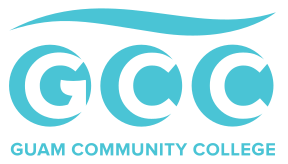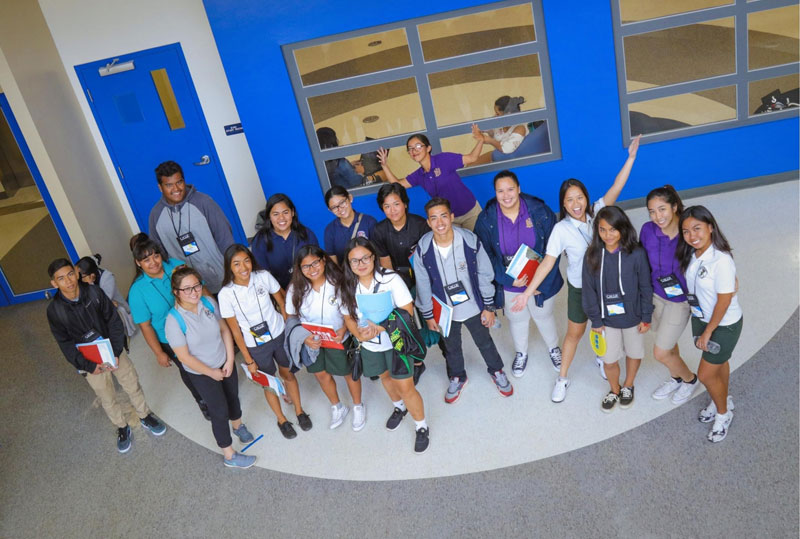Student Discipline
Student Discipline
Disciplinary Policies
Level 1 Violations
A student found to have engaged in any of the following violations may be subject to a maximum sanction of college expulsion.
Being under the influence of drugs and/or alcohol does not diminish or excuse a violation of the Disciplinary Policy.
1.1 Violation of Probation - Violation of the code while on probation or violation of the terms of probation.
1.2 Disruption/Obstruction - Obstructing or interfering with College functions or any College activity to include, but not limited to: the disruption of teaching, research, administration, disciplinary proceedings, and other College activities, including its community service functions on or off campus, or other authorized non-College activities, when the act occurs on College premises. Please note that children are not allowed in classrooms/labs/shops unless their presence is directly related to instruction and the student learning outcomes for the course.
1.3 Failure to Comply or Identify - Failure to comply with directions of College officials, campus security, law enforcement officers, or any other official acting in the performance of their duties, and/or failure to identify oneself to these persons when requested to do so.
1.4 Campus Demonstration - Participation in a campus demonstration that disrupts the normal operations of the College and infringes on the rights of other members of the College community; leading or inciting others to disrupt scheduled and/or normal activities within any campus building or area; and intentional obstruction which reasonably interferes with freedom of movement, either pedestrian or vehicular, on campus.
1.5 Mental or Bodily Harm -
b. Taking any action for the purpose of inflicting mental or bodily harm upon any person;
c. Taking any reckless but not accidental action from which mental or bodily harm could result to any person;
d. Causing a person to believe that the offender may cause mental or bodily harm;
e. Any act that demeans, degrades, or disgraces any person. “Any person,” as used in this section, may include oneself.
1.6 Disorderly Conduct - Disorderly conduct is disturbing the peace and good order of the College by, among other things, fighting, quarreling, disruptive behavior (including displays of gang-like behavior or dress), indecent behavior, public urination, and/or lewd behavior.
1.7 Harassment - Any speech, action, or behavior that is focused on any individual or group based on the individual’s or group’s gender, race, sexual orientation, religion, or ethnicity is a form of harassment and will not be tolerated. Any speech, action, or behavior that demeans, degrades, is inflammatory, or could be considered “fighting words” are unacceptable.
1.8 Discrimination - Discrimination against a person on the basis of race, color, religion, national origin, sex, age, disability, veteran status, or sexual orientation, except where such distinction is required by law.
1.9 Destruction of Property - Recklessly damaging, destroying, defacing, or tampering with College property or the property of any person.
1.10 Theft - Theft or attempted theft of property or services from any person or department.
1.11 Possession of Controlled Substances - The College prohibits the possession, use, manufacturing, delivery, cultivating, sale, or transfer of controlled substances (illicit drugs) within the campus or as part of any college-sponsored activity. Any student reported in apparent violation of the prohibitions indicated in this paragraph shall be referred to local law enforcement officials for investigation and/or prosecution under the law. Under Guam laws, conviction of adults can result in fines from $100.00 to $100,000.00, imprisonment ranging from 60 days to life, or both. Conviction of a minor can result in court jurisdiction over the individual until age twenty-one and may result in detention by the Department of Youth Affairs.
1.12 Possession of Alcoholic Beverages - The consumption of alcoholic beverages on campus and at college-sponsored activities is prohibited except when specifically authorized, in writing, by the President of the College. Students are further prohibited from being on campus while under the influence of alcohol and from bringing alcoholic beverages onto College premises except as stated above. Any student reported in apparent violation of the prohibitions indicated in this paragraph may be referred to local law enforcement officials for investigation and/or prosecution under the law. The severity of the offense shall be considered in the determination of such referral.
1.13 Possession of Stolen Property - Possessing property suspected to be stolen and that may be identified as property of the College or any other person.
1.14 Forcible Entry or Trespass - Forcible or unauthorized entry to any building, structure, or facility and/or unauthorized entry or use of College grounds.
1.15 False Report of Emergency - Causing, making, or circulating a false report or warning of a fire, explosion, crime, or other catastrophe.
1.16 Misuse of Safety Equipment - Unauthorized use or alteration of firefighting equipment, safety devices, or other emergency equipment.
1.17 Plagiarism or Cheating - as defined in this Student Handbook.
1.18 Possession of Dangerous Weapons - Unauthorized possession of a firearm, weapon, dangerous chemicals, or any explosive device of any description (including compressed air guns, airsoft guns, pellet guns, BB guns, shotguns, or illegal knives) on College grounds. Other dangerous items may include fireworks and other devices dangerous to property or person(s) as deemed by the Associate Dean overseeing Student Support Services.
1.19 Illegal Controlled Substances -
b. Possession of any illegal controlled substances, including but not limited to barbiturates, hallucinogens, amphetamines, cocaine, opium, or heroin.
c. Possession of drug paraphernalia, such as bongs, roach clips, or pipes, is prohibited.
1.20 Failure to Appear - Failing to appear at the request of any hearing authority.
1.21 Falsification of Records - Altering, tampering, forging, or knowingly using falsified documents or records of the College (including, but not limited to, student IDs), being party to falsification, giving or providing false statements, written or oral, and/or providing false information during any College proceeding.
1.22 Misuse or Abuse of Computers - Unauthorized use or misuse of any computer, computer system, service, program data, network, cable television network, or communication network, including, but not limited to:
b. Unauthorized transfer of a file.
c. Unauthorized use of another individual’s identification and/or password.
d. Use of computing facilities to interfere with the work of another student, faculty member, or College official.
e. Use of computing facilities to send obscene or abusive messages.
f. Use of computing facilities to interfere with the normal operation of the College computing system.
1.23 Violation of Criminal Law - Alleged violation of any criminal law where the student’s conduct interferes with the College’s exercise of its educational objectives or responsibilities to its members.
1.24 Repeated Violations - After receiving penalties or sanctions for violations, any repeated violations similar in nature.
1.25 Sexual Assault or Harassment - Any violation specified under the College’s sexual assault or harassment policy.
1.26 Aiding and Abetting - Assisting, hiring, or encouraging another person to engage in any violation.
Level II Violations
A student found to have engaged in any of the following violations may be subject to a maximum sanction of disciplinary probation.
Being under the influence of drugs and/or alcohol does not diminish or excuse a violation of the Student Disciplinary Policy.
2.1 Unauthorized Use of Property or Services - Unauthorized use of property or services, unauthorized possession of College property, or the property of any other person or business.
2.2 Misuse of Identification - Transferring, lending, borrowing, altering, or unauthorized creation of College identification.
2.3 Unauthorized Use of Alcoholic Beverages –
b. Public intoxication - Presenting a threat to oneself or others due to being under the influence of alcoholic beverages.
c. Underage possession and/or consumption violate state/local law and will be dealt with by College officials.
d. Alcohol is present in a public area.
2.4 Aiding and Abetting - Assisting, hiring, or encouraging another person to engage in a Level II violation.
2.5 Violation of Any GCC Policy - Violation of any policy outlined in any College publication.
Administrative Structure
The TSS Associate Dean is the administrative officer who has the overall responsibility and authority to supervise student conduct and administer sanctions as delegated by the President, and in consultation with the Dean of the School of Technology and Student Services, as appropriate.
College officials complement the role of Student Support Services in terms of responsibility for the safety and security of persons and property.
In the absence of the TSS Associate Dean, the Dean of Technology and Student Services and Dean of Trades and Professional Services (in the event the student is cross-enrolled) may receive and investigate a complaint or allegation and administer appropriate sanctions for violations.
Sanctions
1. Official Warning - An official warning is a written description of the student’s misconduct with the understanding that this type of behavior is inappropriate and violates the basic expectations of students as set forth by GCC. Furthermore, that further misconduct will result in more severe disciplinary action. The official warning will be placed in the student’s judicial file and will be taken into consideration should there be any further behavioral violations.
2. Behavioral Agreement - A Behavioral agreement is written by the Associate Dean overseeing Student Support Services and the student for the purpose of improving behavior or attitude. The agreement will outline specific obligations or behaviors which the student must meet within a specific period. The agreement serves as a contract of understanding between the student and the administrator.
3. Disciplinary Probation - Disciplinary probation is imposed after a student has committed a serious violation or has repeatedly violated campus policy. Probation allows the student to remain at the College on the condition that they comply with College policies and the conditions of their particular probation or behavioral agreement. The TSS Associate Dean will determine the conditions of the probation. A student on probation is normally not allowed to represent the College in any official capacity, including participating in co-curricular activities, holding an office in a campus organization, or serving on a College committee during the time of probation. The student’s parents (if a minor) will receive written notification of the probation status and the circumstances of the violation. Further violation of campus policy, including violation of the terms of the probation, may result in removal from the College. This must be considered an extremely serious probation.
4. Loss of Privileges - Loss of specified privileges on campus for a designated period.
5. Restitution - Restitution is compensation required of students who engage in theft or damage to property on or off campus. The amount of restitution is dependent upon the extent of damage as well as the determined method for the student to make amends for the damage caused. The TSS Associate Dean determines the amount, form, and method of payment.
6. Suspension - Suspension is the involuntary, temporary loss of student status for a specified period of time, after which the student may return. A suspended student may not attend classes or any College-sponsored event. The student will be required to leave campus and may not return until the period of the suspension has ended. The student will lose credit for the classes carried that term. Fees and tuition will be forfeited according to the withdrawal policy. The TSS Associate Dean may establish additional requirements in some cases, which must be completed prior to the student’s return to the College. This disciplinary action will be recorded on the student’s record in the Student Support Services Office.
7. Expulsion - Expulsion is the permanent termination of student status. This sanction is one of immediate involuntary separation from the College.
8. Discretionary/Educational Sanctions - Discretionary sanctions are actions required by a student outlined by an administrator, which may include referral to health services, student counseling, special seminars or workshops, field study, work detail, community service, or participation in appropriate educational programs.
9. Interim Suspension - Under situations determined to be potentially dangerous, the College may immediately suspend a student from GCC for a specified period. The decision will be based on whether the allegation of misconduct is apparently reliable and whether the continued presence of the student on the College campus may reasonably interfere with the educational or orderly operation of the College. Concerns may be, but are not limited to, the student’s personal physical health or the health and/or safety of other members of the College community or property, or the orderly functioning of GCC. When a student is suspended for an interim period, the period and conditions of the suspension shall be provided to the student, along with a clear statement of what conditions must be met for the suspension to be lifted.
The decision to alter or suspend the rights of a student for an interim period will be communicated to the student in writing and will be effective immediately. Notification will be hand-delivered or sent by certified mail to the last address provided to the Registrar’s Office. Failure or refusal to take receipt of notification will not negate or postpone said action. Students are responsible for updating directory information (including address) with the Registrar’s Office. The notice will include a statement of the regulations or policies that the student(s) allegedly violated, a specific statement of facts constituting the alleged violation, and the time and place of the hearing.
In the event that there is a decision to suspend or expel the student, the sanction will take effect from the onset of the interim suspension.
In the event that a lesser sanction is imposed, the interim suspension will not become a part of the student’s permanent record.
The interim suspension or altered privileges will remain in effect until a final decision has been made on the pending complaint or until the reason for imposing the interim suspension or alterations of privileges no longer exists.
If suspended or expelled, a student will not be reimbursed for the loss of tuition and fees.
10. Behavioral Health Clearance - A student may be required to obtain a medical clearance from a psychiatrist, psychologist, or other licensed behavioral health professional for possible behavioral issues that may cause harm to individuals on campus. This request is based on behavioral action(s) that the student caused while on campus.
Student Appellate Procedure
The student may only appeal through the Appellate Procedure on the grounds that an unreasonable sanction has been imposed or that due process was not followed within three (3) working days of the sanction given. In the event that a semester break inhibits the completion of this process, the process will continue upon the commencement of regular semester classes. Students may appeal written findings of guilt and accompanying sanctions, in writing, through the following steps:
Step One
The student and their counselor or other advisor shall submit to the Associate Dean overseeing Student Services a written appeal stating briefly the reasons for the appeal and shall meet with the Associate Dean to discuss the appeal. The Associate Dean may (1) uphold the previous decision or; (2) decline a decision on the issues appealed; or (3) modify the decision made. The Associate Dean must issue this written decision within five (5) working days of receipt of the student appeal.
Step Two
Upon receipt of the decision of the Associate Dean, the student may appeal the decision to the Dean for Technology and Student Services within three (3) working days. The student and their counselor or other advisor shall submit to the Dean a written appeal stating briefly the reasons for the appeal and shall meet with the Dean to discuss that appeal. The Dean may (1) uphold the previous decision or; (2) decline a decision on the issues appealed; or (3) modify the decision of the Associate Dean. The Dean must issue this written decision within five (5) working days of receipt of the student appeal.
Step Three
Upon receipt of the decision of the Dean for Technology and Student Services, the student may appeal the decision to the President of the College within three (3) working days. The student shall appeal to the President by presenting to the Dean written reasons for the appeal. This notice shall be addressed to the President of the College. Upon receipt of this notice, the Dean shall, within five (5) working days, convene the Student Appellate Board and forward the notice to the President. The Student Appellate Board shall present an advisory opinion to the President on the issues appealed and shall include five (5) impartial members, four (4) of which shall be chosen by the Dean for Technology and Student Services as follows: two (2) faculty members and two (2) students. The four (4) members appointed by the Dean shall choose the fifth member. The Student Appellate Board shall have the power to review any evidence presented to it and cross-examine witnesses in order to render an advisory opinion to the President on the issues appealed. Within ten (10) working days of convening, the Student Appellate Board shall issue its advisory opinion to the President. The President of the College shall issue a final written decision, which may or may not accept or incorporate the recommendations of the Student Appellate Board, within five (5) working days of receipt of their recommendation. If the student appellate procedure timeline cannot be accommodated within the framework of a regular academic term, the process will be initiated at the start of the next regular academic term. The decision of the President is final. The student will be informed of the President’s decision via their Guam Community College email address.



